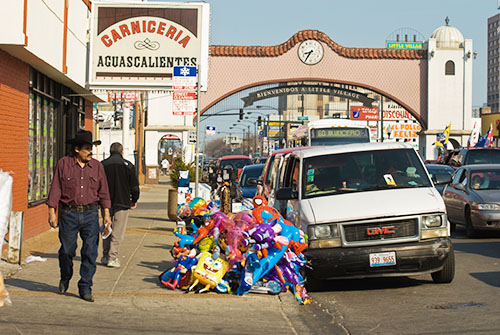Reflections from Malawi and LaVillita on Caring for Creation
Recently, I watched a segment of Piers Morgan Live on the topic of global warming. Much of the discussion was focused on the science of what experts believe to be the causes of the planet’s continual climate disruption and its possible link to recent climate disasters…
Reflections from Malawi and LaVillita on Caring for Creation
Recently, I watched a segment of Piers Morgan Live on the topic of global warming. Much of the discussion was focused on the science of what experts believe to be the causes of the planet’s continual climate disruption and its possible link to recent climate disasters. Catastrophes of extreme weather, like the devastating Oklahoma tornados or the historic Katrina hurricane, have caused many people who have never given climate issues a second thought, to think twice because of the immense devastation and loss of life. Having a serious and helpful conversation about climate change is very controversial and challenging. For some it immediately conjures up images of tree huggers and polar bear lovers. For others it brings back memories of a recent vice-presidential candidate, whose mantra was “drill baby drill.”
 Noel in Malawi
Noel in Malawi
While caring about the opinions and views of others, as a Christ-follower, I’m more concerned with what Scripture teaches. But even though Genesis 1 says that God created and entrusted us as human beings to be stewards of the earth, the commitment to creation care is still not a mainstream Evangelical concern. (When is the last time you heard a sermon on creation care or attended a workshop at a CCDA conference on this topic?)
“I stood in a dry river bed listening to one of the elderly men describe how in his youth, this river flowed with water all year long and was filled with fish”
Today, I have an increased awareness regarding climate change. Ten days before our May CCDA Board meeting in Chicago, Leroy Barber and I had the privilege of traveling together to the country of Malawi, at the invitation of the Evangelical Environmental Network, to learn about the impact of climate change on the poor in this African nation.
What impacted me most on this trip were the stories of men and women we met and spoke with in various villages in this country of almost 15 million, people whose lives have been severely impacted by climate change.
I’ll never forget my visit to the remote village of Fombe, where I stood in a dry river bed listening to one of the elderly men describe how in his youth, this river flowed with water all year long and was filled with fish. Today, he shared, water only flows for a few days at a time and only during the very short rainy season; a drastic change that impacts the ability of the entire village to grow corn, rice, and other crops that families, dependent on subsistence farming for their daily survival, can produce.
 Little Village
Little Village
Listening to this same story in village after village, shared by poor and extremely hard-working families, has forever changed my perspective on climate change, because for me, the issue is no longer simply about scientific evidence, but about human beings created in the image of God; husbands, wives, and children, many who are Christians by the way, whose stories I have now been blessed to hear, who are suffering because of inadequate rainfall and untimely floods and droughts.
“I now see it as part of my Christian responsibility to get informed and get involved because it impacts my neighbor whom I am called to love.”
Closer to home, in my urban neighborhood of La Villita, I recalled a conversation I had with our local alderman who was struggling to make a decision about bringing in a controversial plastics factory to create jobs in the community. Ironically, his strongest and most vocal opponents were his mother and the neighborhood youth. While he struggled to go against his mother’s wishes, he finally did approve having the factory built in our community.
What emerged from this struggle was the establishment of an environmental justice organization, mostly made up of high school students and young adults who are concerned about the negative impact of industrial pollution and toxins because they are suspected of causing asthma and possibly cancer in our immigrant community. Unfortunately, it is not uncommon to locate these types of operations in poor communities around the globe. To the best of my knowledge, this is not a Christian organization, but as a Christian committed to the well-being of my neighbors and to the shalom of my neighborhood, I now see it as part of my Christian responsibility to get informed and get involved because it impacts my neighbor whom I am called to love.
I have to confess that it took traveling thousands of miles to a small country in Africa, and learning from the ‘indigenous knowledge’ of poor farmers, to awaken my awareness to critical environmental and climate issues that impact human lives. And I also realize that I still have much to learn. In the coming years, I pray that as an Association, we too will grow in our awareness of these issues and how they impact our neighbors around the globe and in our own backyards.
Noel Castellanos
CEO, CCDA

